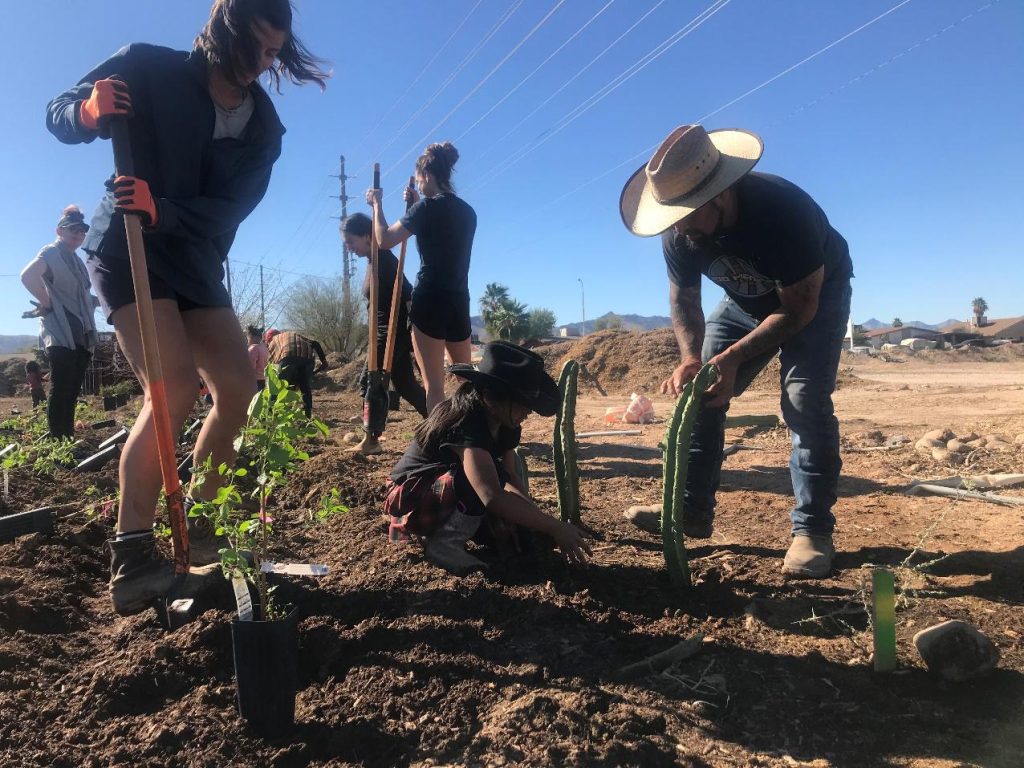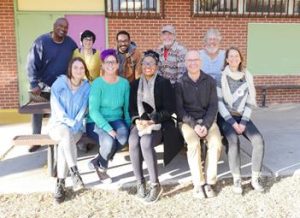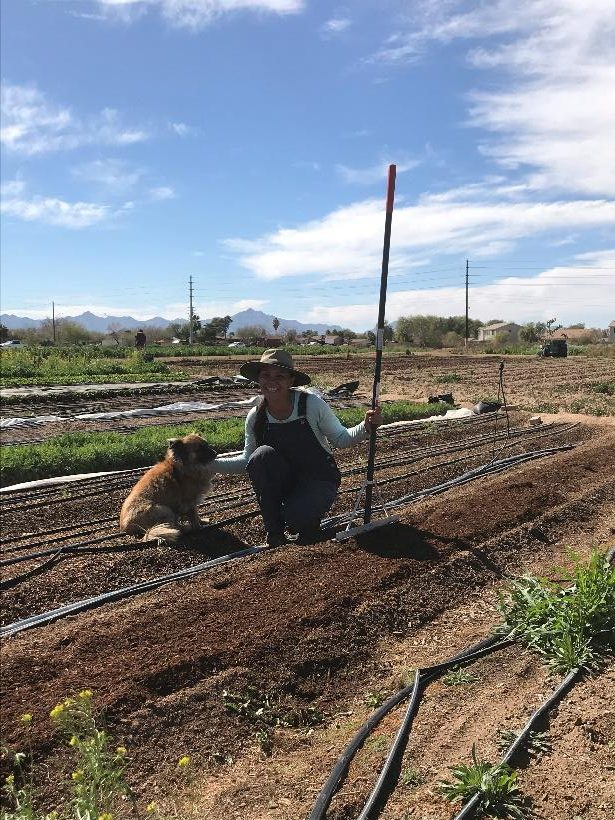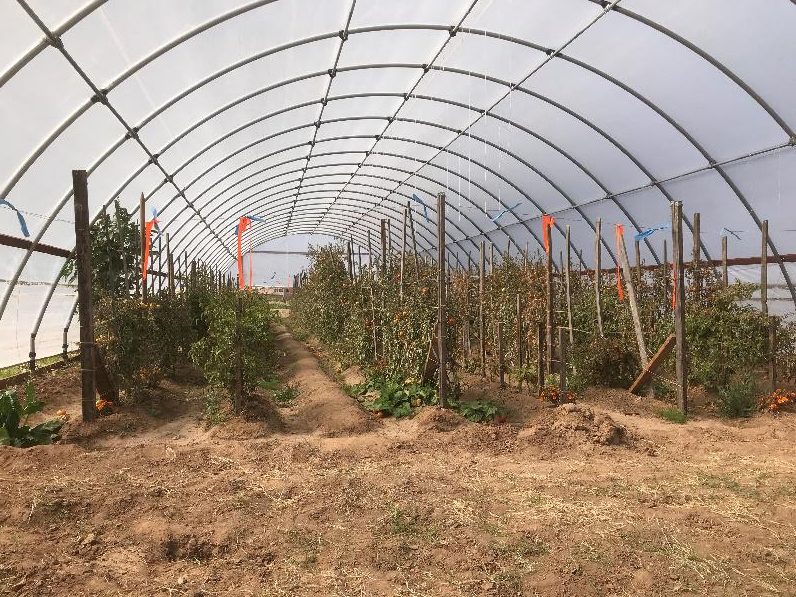The Food Forest Co-op, based in Phoenix, Arizona, consists of 5 co-owners developing a ~0,5ha urban food forest (see Key Skills for details). As organic growers in a hot desert environment they focus on drought tolerant and indigenous growing methods. About half the site is planted as of 2022 with native, Mediterranean and other desert-adapted plants. These include around 25 production-oriented plant species including prickly pear cacti, chiltepin chilis, moringa as well as mesquite, mulberry, apricot and fig trees. Infrastructure includes a hybrid grid irrigation system, a storage container, a greenhouse nursery as well as shade structures to protect young plants from the intense summer heat (32-49 °C).
The team intends to create value added products with a cultural and community driven focus. The food forest is used to engage with the local community and offer educational opportunities around the value of culturally relevant, whole fruits and vegetables, medicine making, and learning about the many uses of edible and medicinal plants.

Planting the FFC food forest in 2022
The food forest was initiated in 2019 by members of the Sustainable Food Economy Lab at Arizona State University and the urban farm Spaces of Opportunity. Being located in an area of multiple social, environmental, and economic deprivations, Spaces of Opportunity aims at creating alternative pathways and opportunities for learning, livelihoods, economic development, and place-building. Community groups, local non-profits, schools, and other organizations have transformed a 7,6ha vacant lot into a multi-functional food hub through a variety of programs, including an incubator farm, community gardens, a farmer’s market, and a community café.
My PhD had allowed comprehensive research on food forests and searching for a suitable site in Phoenix to implement one. Spaces of Opportunity matched most site search criteria and the farms’ co-founders were highly motivated to develop a food forest together.
Our initiating team consisted of 2 co-founders of Spaces of Opportunity, 4 prospective food forest entrepreneurs (2 farmers, the farm manager and a chef) and 2 researchers from Arizona State University. After developing and signing a Memorandum of Understanding with shared goals and a project timeline, we jointly created a vision and action plan for a food forest with strong sustainability ambitions on a 0.5 ha plot of the farm. The plot was the only one that was not farmed but used for storage of mulch and straw and had soil dumped from school construction (not contaminated).


(1) Southwest corner plot at Spaces of Opportunity selected for the food forest and (2) the initiating team, team photo: Maud Dieminger (2019)
After several months of site and business planning as well as 10 unsuccessful fundraising activities over the course of a year, finally, a major grant ($100,000) allowed to start the implementation. The Food Forest Cooperative started to form in March 2021, about 2 years after we had initiated the collaboration, with a new team of entrepreneurs.



Impressions from the urban farm Spaces of Opportunity: (1) Market gardener Susan with her goopher-chasing dog,
(2) Hightunnel tomato production and
(3) polyculture vegetable production by other farmers for the weekly market